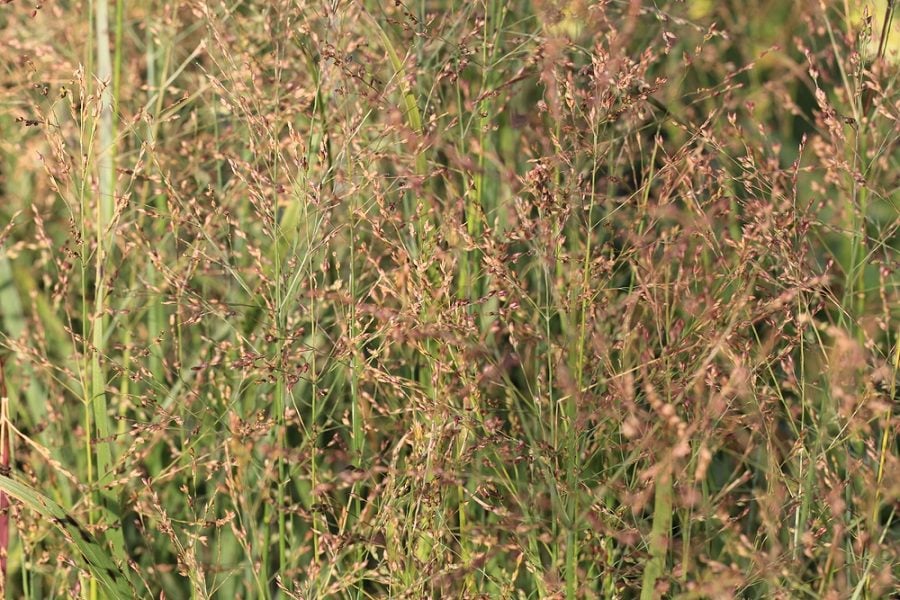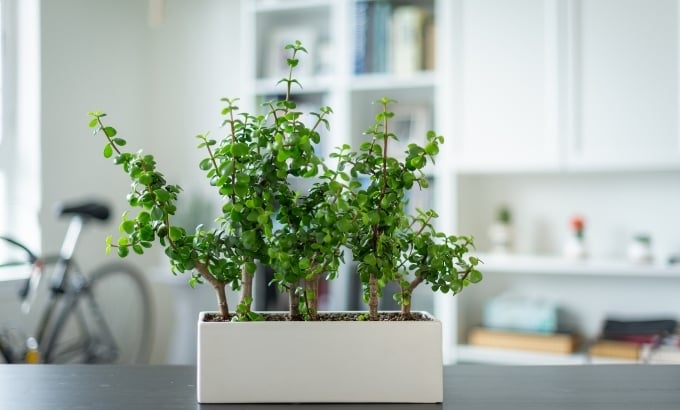Some people still have not recognized yet that wet areas can be the best spot to plant the native plants in Ohio. Moreover, if you already have the clay or sandy type soil. Although they love wet areas, most of them require full sun for better bloom results. Ohio native plants for wet areas are varied, but you can check them out one by one here.
If you are still confused about them, you can start with the grass first or the plants that we think are low maintenance. It is time to give a fresh look to your rain garden!
Table of Contents
- BEST Ohio Native Plants for Wet Areas
- 1. Wild Bergamot (Monarda Fistulosa)
- 2. Switchgrass (Panicum Virgatum)
- 3. Common Winterberry (Ilex Verticillata)
- 4. Northern Spicebush (Lindera Benzoin)
- 5. Big Bluestem (Andropogon Gerardi)
- 6. Swamp Rose (Rosa Palustris)
- 7. Common Ninebark (Physocarpus Opulifolius)
- 8. Stiff Goldenrod (Solidago Rigida)
- 9. Black Eyed Susan (Rudbeckia Hirta)
- 10. New England Aster (Symphyotrichum Novae-angliae)
- Final Thought
- FAQ (Frequently Asked Questions)
BEST Ohio Native Plants for Wet Areas
Nestled within Ohio’s diverse landscapes, there exists a secret world of plants that thrive where others might falter — in the wet, watery realms. These native wonders, perfectly adapted to Ohio’s damper nooks and crannies, bring both beauty and ecological balance to soggy sites. Venture with us into the lush realms of Ohio’s water-loving flora.
Discover the vibrant array of plants that not only embrace the wet but flourish in it, painting Ohio’s wetlands with life and color.
1. Wild Bergamot (Monarda Fistulosa)


The beautiful flowers that love wet areas. Wild bergamot has a fragrance that is similar to mint. So, it can freshen the area if you plant it. Although the plants can thrive in wet locations, a good air circulation is needed too.
Also, don’t forget to place it under full sun. It is deer resistant, so you don’t have to worry if you have a plan to plant one near your home.
2. Switchgrass (Panicum Virgatum)


In Ohio, planting the grass is pretty common. That’s why you can plant switchgrass there. This grass is not too difficult to handle since it can tolerate poorly drained wet ones and low fertility soil moisture, and occasional flooding.
Yet, this plant loves moist and well drained soil.
3. Common Winterberry (Ilex Verticillata)


The plants that love wet areas have a bloom period from April to July. So, during spring and mid summer, you can see the fruits are produced by the trees.
Moreover, these plants will tolerate poor drainage and a winter hardy too. Please prepare for the moist soil with a type of clay or sandy for best bloom, since its native habitat is at the swamps, ponds or lakes.
4. Northern Spicebush (Lindera Benzoin)


This is the most useful wet plant that you can start to establish. You can use the leaves for making tea, and the red fruits can be used as the spice. So, it will be very helpful for your kitchen if you have this one in your rain gardens.
Spicebush loves moist, sandy and well-drained soil. You can place it under the full sun to part shade. Besides, it is not only useful for you, but also for the birds and butterflies.
5. Big Bluestem (Andropogon Gerardi)


Another type of grasses that will not disturb your activity as long as this one is planted under the full sun. It can handle higher drought tolerance, but it loves sandy, loamy or clay soil.
You can call it Turkey Foot as well. Its color is not the same as the common grass, so it can add a new layer in your garden once you have it.
6. Swamp Rose (Rosa Palustris)


The pale pink flowers with green foliage are pretty suitable for the rain garden because the original habitat of Swamp Rose is on swamps, ponds and lakes. It also loves wet soil and moist soil.
You need full sun to part shade, so for the shade gardens, you can place it too. The flowers have fragrance and it will attract the birds
7. Common Ninebark (Physocarpus Opulifolius)


These shrubs attract butterflies, birds, and pollinators. The soil types for this plant are clay, sandy or loamy. Such a typical for the plants who love wet areas.
8. Stiff Goldenrod (Solidago Rigida)


These plants are native to Ohio. The bright yellow flowers will bloom in early fall, so you can feel its warmth vibe although the weather is cooler after the summer just gone.
Stiff Goldenrod loves full sun and you can plant it inside the clay, loam or sandy soil, but it prefers consistently moist soil to reach the best when the bloom period comes.
As the flowers bloom, the birds, butterflies, pollinators and host plants will come.
You might also like:
- 11 Fresh Perennials That Bloom All Summer in Ohio
- 12 Best Flowers To Grow in Ohio For Cutting
- 10 Low Maintenance Shrubs For Ohio Home Landscape
- 12 Beautiful Landscaping with Native Plants From Ohio
- How To Identify Male VS Female Zucchini Flowers
9. Black Eyed Susan (Rudbeckia Hirta)


Well, nope, it doesn’t belong to the sunflower family, but the Aster family. Yes, Black Eyed Susan is considered to be the Aster family. You can see it through the petals.
The bright yellow flowers attract butterflies, bees and also attract other beneficial insects.
The name of black eyed refers to the black center of the flower. Black Eyed Susan will be happy inside the rich and moist soil and place it under the full sun to reach the stunning colors during blooming time.
10. New England Aster (Symphyotrichum Novae-angliae)


This plant is a source food for Monarch butterflies, so do not be surprised if it attracts butterflies, birds, and bees, especially when the bloom period comes. It loves wet soils.
Besides, when most flowers can enjoy its blooming during spring or summer, this plant has a late bloom, which is starting in August to October. An area which is exposed from the full sun to part shade is the best area for the plants.
Final Thought
In the verdant tapestry of Ohio’s landscapes, the native plants for wet areas emerge as unsung heroes. They’re not just about aesthetic appeal; they tell a story of resilience, adaptability, and ecological importance.
As we grow more conscious of our environment and the spaces we inhabit, embracing these moisture-loving plants becomes more than a gardening choice—it’s a nod to nature’s ingenious design. For those in Ohio, every patch of damp ground becomes an opportunity—a canvas awaiting these native marvels to bring it to vibrant life.
Latest Posts:
- The Touch-Me-Not Plant: Shy on the Outside, Powerful on the Inside
- Who Knew Crushed Eggshells Could Guard Your Plants?
- My Secret DIY Weed Spray That Actually Works—No Harsh Chemicals Needed!
- Who Needs Sleeping Pills When You Have Jasmine? This Fragrant Beauty Calms Your Nerves!
- Tired of Overpriced Blueberries? Grow Your Own Endless Supply with This Simple Method!
FAQ (Frequently Asked Questions)
What are native plants to Ohio?
Black Eyed Susan, Stiff Goldenrod, and Wild Bergamot can be found easily in Ohio. They are some Ohio native plants for wet areas. So, you can start establishing them now for a stunning garden.
Do these plants require special soil preparations?
Generally, these plants prefer moist, well-draining soils. While they’re adapted to Ohio conditions, ensuring the soil retains moisture without becoming stagnant is key.
How do these plants handle Ohio’s winters?
Being native, these plants are naturally equipped to handle Ohio’s chilly winters. They’ve evolved over centuries to withstand local climate changes, ensuring they bounce back every spring.
How often should you water these plants?
While they love moisture, it’s essential not to overwater. Since they’re adapted to Ohio’s rainfall patterns, usually letting nature do its job, with occasional supplemental watering during dry spells, is best.
What can you plant in your wet area in your yard?
You can start with the grass and perennials to plant your wet area in the yard. Big bluestem, Black Eyed Susan and Wild Bergamot can be a good choice for your new plants. Don’t forget to check the lighting requirement before establishing it.








